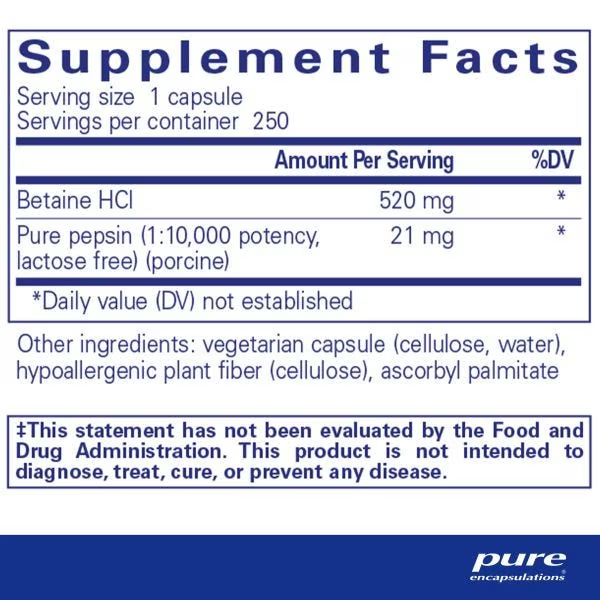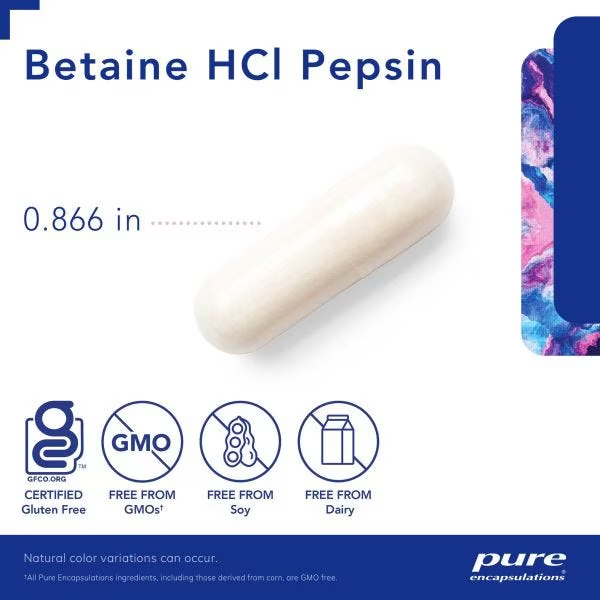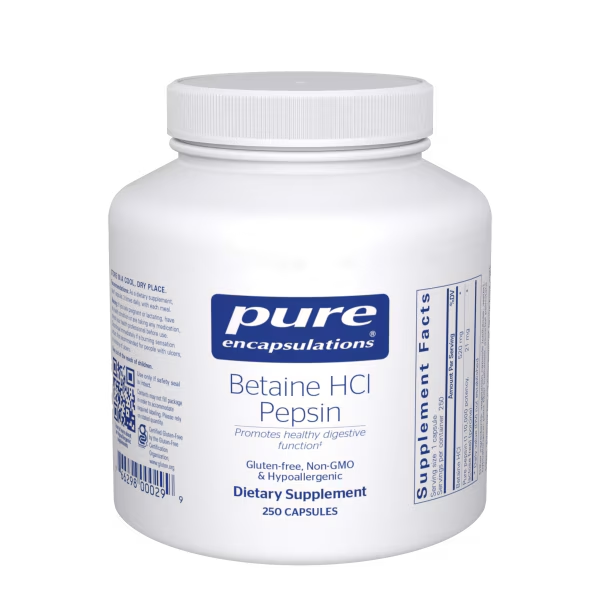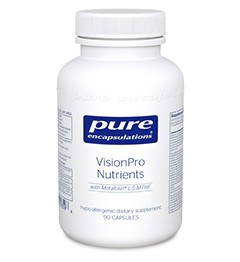- Please choose product options by visiting Nightime Cold and Flu Liquid.
Product Detail
- Home
- /
- Betaine HCl Pepsin





- Description
- FREE FROM
- Benefits & Features
- Science & Research
- Additional Information
- Resources
Promotes healthy digestive function‡
Betaine HCl increases the acidity of the stomach‡
Betaine HCl is short-acting, temporarily lowering gastric pH when taken before meals.‡
Supports healthy gastric function‡
Promotes absorption of protein, vitamin B12 , calcium and iron from food sources‡
May enhance digestive enzyme function
Part of the PureGI® product line
Made with high-quality ingredients backed by verifiable science
Indications
Ages 18 and up
Healthy digestion support‡
Suggested Use
As a dietary supplement, take 1 capsule, 3 times daily, with each meal.
‡These statements have not been evaluated by the Food and Drug Administration. This product is not intended to diagnose, treat, cure, or prevent any diseases.
Verifiable Science
Betaine HCl and pepsin are gastric-juice components essential to the digestion of food and absorption of most nutrients.1 In particular, betaine HCl is necessary for adequate absorption of protein, calcium, vitamin B12 and iron.2 The low pH of the stomach’s hydrochloric acid destroys ingested bacteria and microorganisms.3,4 This formula can be beneficial for anyone seeking enhanced digestive function.‡
References
Yago MR, et al. Mol Pharm 2013 Nov 4;10(11):4032-7.
Russell RM. Nutr Aging 1986;59-67.
Shindo K, et al. Am J Gastroenterol. 1993 Dec;88(12):2084-91.
Russell RM. J Nutr. 2001;131(4); 1359S-1361S.
Warning
If you are pregnant or lactating, have any health condition or are taking any medication, consult your health professional before use.
Discontinue immediately if a burning sensation occurs. Not recommended for people with ulcers, or a history of ulcers.
Storage
Store in a cool, dry place.
Source
Betaine HCl is synthetic
Pepsin is porcine derived
Vitamin C (ascorbyl palmitate) is derived from corn dextrose fermentation and palm oil
Hypoallergenic plant fiber is derived from pine cellulose





